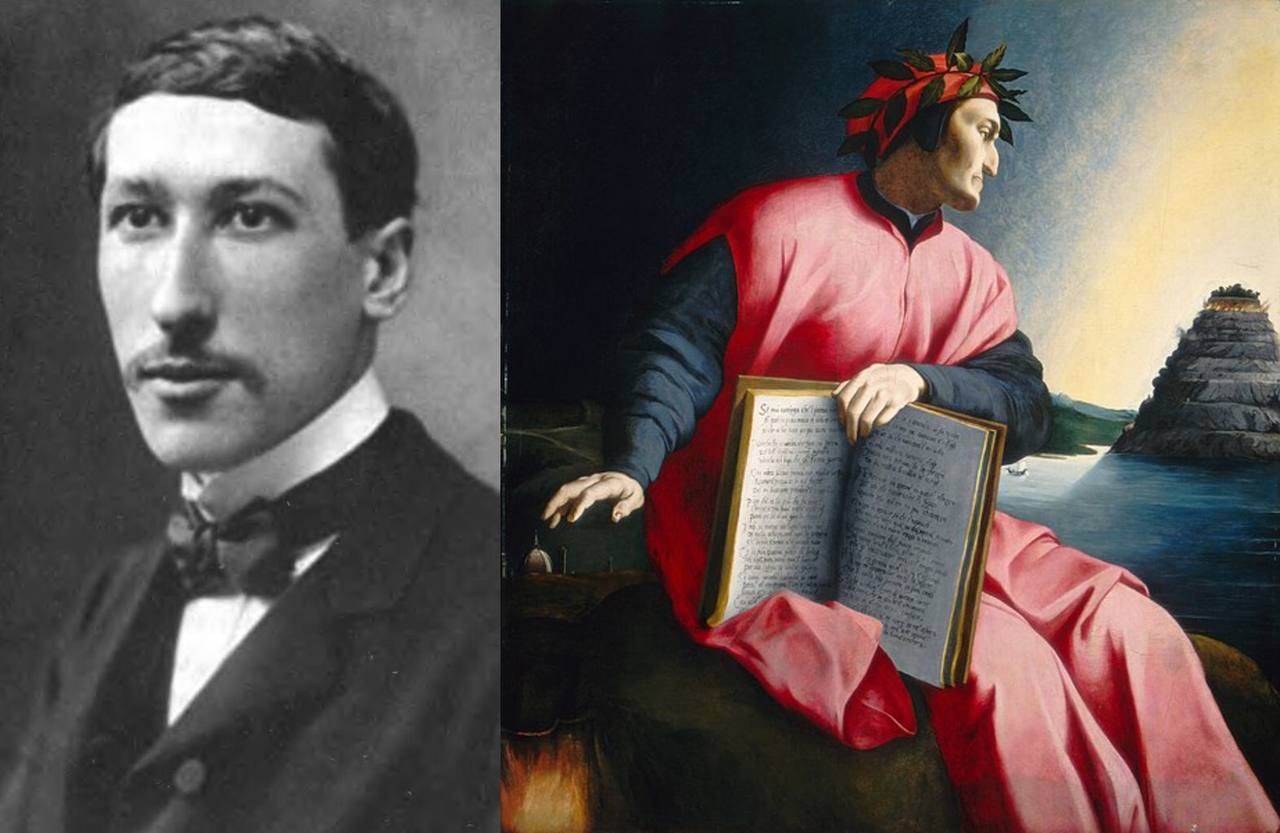René Guénon on True Esotericism
by Dmitry Moiseev
Dmitry Moiseev challenges the misconception of superficial eclecticism and reveals a quest for universal Truth through the lens of René Guénon.
Individuals who have not taken the trouble to explore Traditionalism often sincerely believe that the subject of this intellectual movement is indistinguishable from crude, superficial eclecticism. Traditionalists indeed turn to various sources belonging to different spiritual cultures: Greco-Roman, Hindu, Buddhist, Islamic, Christian. Based on identified parallels and using what they call the ‘traditional method’, they draw general conclusions. René Guénon clearly articulated the explanation and justification for such an approach in his book The Esoterism of Dante (1925):
For some, the question stands thus: is Dante a Catholic or an Albigensian? For others, it seems, the question is in different terms: was he a Christian or a pagan? As for us, we think that one should not adhere to such a viewpoint, as true esotericism is something entirely different from external religion. If it has any relation to it, it may be because it finds in religious forms a means of symbolic expression — regardless of which religion these forms belong to since it is about the essential unity of the doctrine that hides behind the visible diversity. That is why the initiates of antiquity participated equally in all the cults of external religions, following the rites established in the various countries in which they were.
The main thought to be drawn from Guénon’s reasoning is the idea of the essential secondary nature of forms. Techniques can vary; what is important is only the vector of the path you have embarked upon. If the vector is ascending, you are striving ‘upwards’ towards authentic transcendence. Then external ritualism should not play any significant role for you. Therefore, examples, teachings, and practices from one or a number of other spiritual traditions and cultures can be equally persuasive and effective for you. By adopting such a position, you do not ‘mix heterogeneous elements’, which implies an eclectic approach. On the contrary, you reveal the ‘singular’ and ‘authentic’ given in the variety of symbolic forms. There is only one Truth, to which one can arrive by various paths. Comprehending it is the most important task of life.
(translated by Constantin von Hoffmeister)




Guenon is absolutely correct about the “initiates of antiquity,” who worshipped equally whatever religion they came upon. All roads led them to the divine.